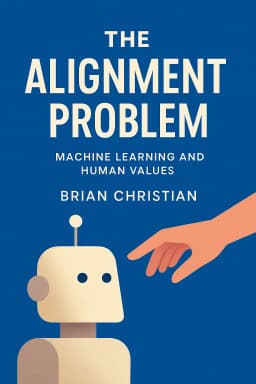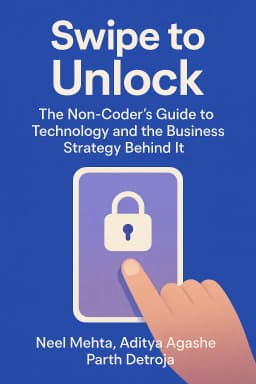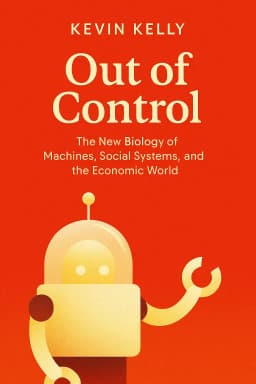
The Reputation Revolution: Innovating Your Value in a Digital World
Golden Hook & Introduction
SECTION
Dr. Celeste Vega: Imagine walking into a hotel for the very first time, and the concierge greets you by name, bypasses the line, and offers you a complimentary upgrade to the best suite. You ask why, and the clerk explains, 'Our computers analyzed your online presence. You're a valued customer before you've even spent a dollar with us.' This isn't science fiction; it's the world described in Michael Fertik's Welcome to the Reputation Economy. This is a world where your digital footprint has become a new, powerful currency. With me to explore this is 估计, a keen observer of innovation. Welcome.
估计: It's a pleasure to be here, Celeste. That opening scenario is the perfect hook because it feels both enticing and slightly unsettling.
Dr. Celeste Vega: Exactly! It captures the dual nature of this new world. And that's what we're going to unpack today. The book lays out a fascinating, and sometimes frightening, roadmap of this emerging economy. So, we'll tackle this from two angles. First, we'll explore the invisible scoring system that is already shaping our lives. Then, we'll discuss how we can become the authors, not just the subjects, of our digital stories.
Deep Dive into Core Topic 1: The Invisible Score
SECTION
Dr. Celeste Vega: So, 估计, that hotel scenario sounds great, right? Who wouldn't want VIP treatment? But the same technology that gives you a suite upgrade has a much darker side. This is the core of the book's first big idea: the shift from 'Big Data' to 'Big Analysis'.
估计: I think that's a critical distinction. For years, we've heard about 'Big Data'—this massive, passive collection of information. But the innovation here is the 'Analysis' part. It's the active interpretation of that data to make judgments and predictions.
Dr. Celeste Vega: You've hit it precisely. The book has a brilliant analogy for it: "If Big Data is knowing you’re sitting on a gold mine, Big Analysis is actually getting it out of the ground and turning it into bullion." It's about extracting value, or in this case, a judgment about your value. And this can happen based on the tiniest, most insignificant actions. The book gives a chilling example. Picture this: it's 2 AM, you're scrolling aimlessly on your computer, and you see this ridiculous web banner ad. It promises something like, 'Lose 30 pounds in 30 days!' You know it's nonsense, but out of sheer, sleepy curiosity... you click.
估计: A single, meaningless click. We've all done it.
Dr. Celeste Vega: Exactly. But in the world of Big Analysis, that one, single click isn't just a click. It's a data point. The algorithm notes the time—2 AM, a potential indicator of insomnia. It notes the content—weight loss, which could be flagged as a potential health concern, or maybe susceptibility to dubious claims. Suddenly, in some database you'll never see, your 'health score' and maybe even your 'financial prudence score' tick down a fraction of a point. And you never even knew it happened.
估计: That's chilling. It's an automated judgment with no context, no understanding of human curiosity or boredom. The machine can't know it was an idle click; it only knows the correlation. It's a form of digital profiling, but what's truly innovative—and terrifying—is its permanence. A human might forget that one odd comment you made, but the data doesn't. It raises the question: how do you defend your character against a machine that has already passed sentence?
Dr. Celeste Vega: And there's no court of appeals for an algorithm! The book argues these scores will be used for everything. A potential employer's screening software might automatically filter you out because your 'insomnia' and 'health concern' flags make you a higher insurance risk. A bank might offer you a slightly higher interest rate. It's a quiet, invisible force shaping your opportunities.
估计: So, the innovation isn't just in the technology, but in the creation of a new, invisible social hierarchy based on data. It's a system of control that operates under the guise of objective analysis. It makes me wonder, what are the checks and balances on this system? Who designs the algorithms? What biases are baked into them from the start?
Dr. Celeste Vega: These are the critical questions the book forces us to confront. For example, the authors describe how companies are already using your social network to score you. A study found that you are significantly more likely to declare bankruptcy if you have friends who have also declared bankruptcy. A lender's algorithm could see that connection and downgrade your creditworthiness, simply because of who your friends are.
估计: That's a profound thought. It punishes association. It implies that to be 'safe' in the reputation economy, you must curate not only your own actions but also your relationships. That feels like a very isolating and dystopian consequence of what is presented as a neutral, data-driven innovation. It's a system that can easily create self-fulfilling prophecies. If you're scored as a risk, you're denied opportunities, which makes you an even bigger risk. It's a downward spiral, automated.
Dr. Celeste Vega: A perfect summary of the danger. It's a system that can lock you into a reputation you didn't even know you had.
Deep Dive into Core Topic 2: Narrative as Power
SECTION
Dr. Celeste Vega: That's the million-dollar question, and it leads perfectly to the book's second major idea. If this system of scoring is inevitable, you can't always fight it directly, but you can innovate within it. You can become the author of your own story. And there's no better example of this than the incredible story of Arnel Pineda.
估计: I'm not familiar with that name.
Dr. Celeste Vega: You will be. So here's this guy, Arnel Pineda, in Manila in the mid-2000s. He's an incredibly talented singer, but he's mostly performing in cover bands in smoky bars. In the old world, that's where his story might have ended—a local legend, but nothing more. But he and his friends start uploading videos of him singing classic rock songs, especially Journey songs, to YouTube. The videos aren't professionally produced; they're grainy, the sound is raw, but his talent is just undeniable.
估计: So he's creating his own content, his own portfolio.
Dr. Celeste Vega: Precisely. He's putting his value out there for the world to see. Meanwhile, half a world away in California, Neal Schon, the founding guitarist for the legendary band Journey, is desperately searching for a new lead singer. He's frustrated with the options. Late one night, he's scrolling through YouTube, and he stumbles onto one of Arnel's videos—a cover of "Faithfully." He's blown away. He actually thinks it's a fake, that someone has dubbed a recording over the video. He contacts this unknown singer from a bar in Manila, flies him to the US for an audition, and within months, Arnel Pineda is the new frontman for Journey, playing to sold-out stadiums around the world.
估计: Wow. That story is the perfect illustration of innovative disintermediation. YouTube became his portfolio, his agent, and his audition tape all at once. He didn't need a record label, a publicist, or a manager to get noticed; he just needed a platform to broadcast his 'value'—his talent. He proactively built a narrative of excellence that was discoverable.
Dr. Celeste Vega: He built his own 'soup can,' to use the book's Andy Warhol analogy. He made himself discoverable. But this power of narrative is a double-edged sword. It can also be used for destruction. The book gives the counter-example of the "ArcticReady" hoax against Shell Oil.
估计: What happened there?
Dr. Celeste Vega: In 2012, Greenpeace and a group of activists wanted to protest Shell's Arctic drilling. Instead of just picketing, they launched a sophisticated, fake marketing campaign. They created a slick, official-looking website, ShellArcticReady.com, and a Twitter account. They then invited the public to create their own ads for Shell with a user-friendly meme generator. People created thousands of brutal, hilarious, and sharable ads with slogans like "You can't run your SUV on cute." The hoax went viral. The media reported on it as if it were real. Shell's PR team was completely blindsided.
估计: They hijacked the narrative completely. It's the same principle as the Arnel Pineda story, but weaponized. It reminds me of Ernest Hemingway's 'iceberg theory' of writing. What you see—the viral video of Arnel, the fake Shell ad—is just the one-eighth of the iceberg that's above the water. The seven-eighths below is the strategic intent, the deep understanding of how narratives spread and take hold in this new economy. Whether for good or for ill, the person who best understands how to craft a compelling story holds immense power.
Dr. Celeste Vega: That's a fantastic connection to Hemingway. And it's so true. Shell could issue all the press releases they wanted, but they couldn't compete with the power of a simple, devastatingly effective story that was spreading like wildfire. Their reputation was assassinated by a better narrative.
Synthesis & Takeaways
SECTION
Dr. Celeste Vega: So we have these two powerful, opposing forces at play. On one hand, the automated, often invisible judgment of 'Big Analysis' trying to score and define us.
估计: And on the other, the very human power of narrative—our own innovative capacity to define ourselves and tell our own story. It's the machine's logic versus the artist's story.
Dr. Celeste Vega: A perfect way to put it. So, for our listeners who are hearing this and feeling a bit of that anxiety, what's the takeaway? How do you thrive in this Reputation Economy? The book's ultimate advice isn't about learning to code or gaming the system. It's actually much more traditional. It's about earning your reputation.
估计: Which, in itself, is an innovative act in a world of shortcuts. The book suggests that the best long-term strategy is to create real, undeniable value. To be good at what you do, to treat people well, to be authentic. Because while negative information is permanent, so is a long track record of excellence.
Dr. Celeste Vega: Exactly. You can't fake a decade of positive contributions. In the end, the algorithm, for all its flaws, is still just a reflection of the data it's fed. The best way to manage your reputation is to live a life that generates good data.
估计: Right. The most powerful, long-term innovation is authenticity. So the question we should all ask ourselves, borrowing from the book's Andy Warhol story, is this: In this new reputation economy, what is your 'soup can'? What is that unique, undeniable value that you are putting out into the world for others to discover?
Dr. Celeste Vega: A powerful question to end on. 估计, thank you so much for bringing your insightful perspective to this.
估计: The pleasure was all mine, Celeste. A fascinating topic.









